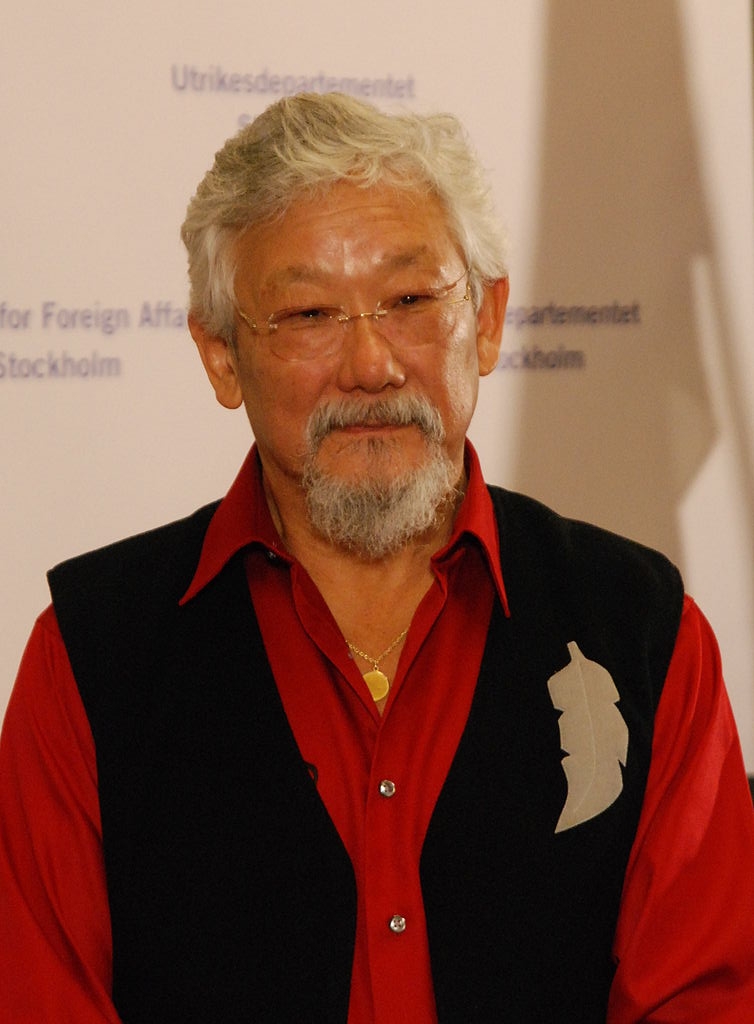David Suzuki Foundation

Credit: Holger Motzkau
Licence: Creative Commons Attribution-Share Alike 3.0 Unported
3 December 2009, 09:25:26
| Giver: | Individual |
|---|---|
| Receiver: | Registered Organization |
| Gift: | Money |
| Approach: | Philanthropy |
| Issues: | 13. Climate Action |
| Included in: | Private Foundations |
David Suzuki (1936- ) is a Canadian geneticist, author and environmental activist. He is co-founder of the David Suzuki Foundation, a non-profit organization dedicated to environmental protection, climate solutions and building sustainable communities in Canada. As long-time host of CBC TV’s The Nature of Things, Suzuki used his down-to-earth broadcast style and passion for science to educate viewers about the natural world and foster their sense of belonging to it. In all his work, Suzuki is guided by his urgent belief that the planet’s survival requires humans to embrace our intrinsic interconnectedness with the land, the air, the water and other living species.
Suzuki’s experiences as a child during World War II did much to shape his sense of moral purpose. He was six years old when he and his family (all Canadian-born citizens) were sent to an internment camp in 1942, subject to the U.S. and Canada’s xenophobic reaction to the Japanese bombing of Pearl Harbor. Three years later, the U.S. atomic bombing of Hiroshima and Nagasaki revealed to Suzuki the horrific power of technology to destroy human life and contaminate the environment.
Suzuki earned his PhD in zoology at the University of Chicago in 1961 and served as professor of genetics at the University of British Columbia from 1963 to 2001. Early in his career he began to dabble in broadcast journalism, driven by a desire to share the wonders of science with a wider audience. In 1979 he became host of The Nature of Things, one the first television programs to present scientific evidence for environmental issues in language that was accessible to the general public.
In the early 1980s Suzuki’s world view was profoundly altered by his first encounter with the Haida, a First Nations people battling industrial loggers over forest rights on British Columbia's Haida Gwaii, formerly known as the Queen Charlotte Islands. Covering the controversy for The Nature of Things, Suzuki interviewed Haida activist and artist Guujaaw, who explained that cutting down the Haida’s old-growth forest would effectively erase their identity as a people. As Suzuki later recalled, it was Guujaaw who taught him “There is no 'environment out there' ... the environment is what makes us who we are."
This radical truth has guided Suzuki’s environmental activism ever since. For him, the world’s future relies upon the deep alignment, rather than opposition, between economic and environmental interests. As the David Suzuki Foundation’s “Declaration of Interdependence” avows: “At this turning point in our relationship with Earth, we work for an evolution: from dominance to partnership; from fragmentation to connection; from insecurity to interdependence.”
Contributors: Maha Tazi, Erin Brown
| Source type | Full citation | Link (DOI or URL) |
|---|---|---|
| Publication |
Suzuki, David. The fundamental failure of environmentalism, David Suzuki Foundation, 2012. |
https://bit.ly/3YoRXOE |
| Book |
Gordon, Anita; Suzuki, David. “It’s A Matter of Survival”, Harvard University Press, 1991. |
ISBN: 0-674-46970-4 |
| Book |
Suzuki, David. David Suzuki: The Autobiography, Douglas & McIntyre Publishing Group, 2006. |
ISBN-13: 978-1-55365-156-7 ISBN-10: 1-55365-156-1 |
| Book |
Suzuki, David. The Legacy: An Elder’s Vision for our Sustainable Future, Douglas & McIntyre Publishing Group,. 2010. |
ISBN: 978-1-55365-570-1 |
| Book |
Suzuki, David. Inventing the Future, Allen & Unwin Publishers, 1990. |
ISBN: 0044421931; 9780044421931 |